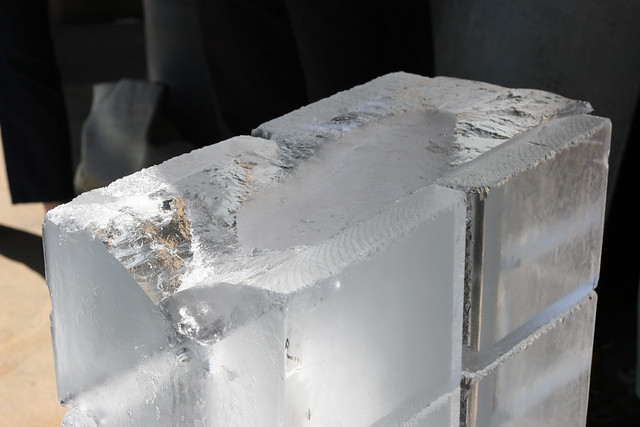There is an old joke or fable among the African American community...It goes like this, in this small town, a black man was selling ice to the people of the town. He was making a good living from his ice selling business. A white man, seeing the profit in such a venture started a competitive ice selling business. The Blacks in the town began to buy their ice from the white man. When asked why the change, they answered "the white man's ice is colder".
"White man's ice is colder". I love how succinctly it shows the ridiculousness of internalized, institutional racism even better than the famous
Clark doll experiment that paved the way for
Brown v. Board of Education. Its a persistent problem in minority communities in the US, in post-colonial societies and its something I've witnessed in the medical community among doctors from Syria, Lebanon and Jordan.
When I was in Beirut, I was impressed with the level of care at the two hospitals I worked at. Residents there knew their stuff, worked their butts off and could handle anything that came in the door. One resident I knew had memorized every diagram in all 1500 pages of
Harrison's.
To my surprise, there was a pervading expectation that you MUST train abroad. In one
study 95% of Lebanese med students planned to do either residency or sub-specialty abroad. Of those, 3/4 planned to go to the US.
There are a number of
factors in this decision, including increased competitiveness for jobs in Beirut (where there are actually too many doctors) as well as cultural norms of emigration.
But ironically, many Lebanese med students ended up in the US getting training of lower quality than they were getting in Lebanon (not to name hospitals). Yet having that "trained in the US" stamp was highly sought after regardless of the actual quality of training received.
This also manifested itself in how people interacted with me in Beirut, where pedigree was paramount. One resident once introduced me to a patient saying, "This is Yale." There was an assumption that whatever medical management we did in the US was the standard of care. Where the reality is that there is a high degree of variation in practice, protocols and quality between different hospitals in the US. To give one
example, there is a lot of variation in antibiotic choice, duration and even what threshold to treat cases of ventilator associated pneumonia. In my own personal experience, I've seen vastly different practices from
c-section rates to wound management.
It manifests in how those around me are treated. Dr. B, who is a second year resident and whom I have high respect for as a clinician, is often dismissed when he raises medical points with some of the patients we've seen. Yet when I speak, people seem to listen. So we've tried to use this to our advantage - like when one patient was hypotensive and needed fluid (quickly!). Dr. B's requests were ignored when we could see that running one small-bore IV with 0.5L at a time wasn't going to cut it. We only got a second IV when I went directly to the doctor to ask for it.
Granted, there are clear differences in the capacity of different medical services here. Troponins are binary in many hospitals here, meaning that they're either positive or negative. In the US we use these lab values to track not only whether someone had a heart attack (i.e. positive troponins) but how high the troponins go tells us about how bad the heart attack was. And even worse, when kidney function is reduced, these numbers are even harder to interpret. (Troponins are released when there's injury to heart muscle and cleared by the kidney. But if the kidney isn't functioning well, it messes up our ability to tell both if someone had a heart attack and how bad that attack might have been.)
And sometimes there's just poor care, like how it took 30 minutes to even get vitals on Abu Hussein when we took him to ER. Unfortunately, poor care occasionally happens both in the US and here in Jordan. While individual physicians and nurses in both places can be excellent, infrastructure, hierarchy and budget constraints negatively impact care in both places.
Healthcare in the US and here are not equal. In a middle income country, resource and infrastructure constraints have a more palpable impact on the system of care here than in the US. But I've been extremely impressed by many of the physicians I've worked with - from Syria, Lebanon or Jordan. Internalized racism does not subside easily, yet I hope the fallacy that one "must" be trained in the US to be a good doctor can be put to rest sometime soon.






